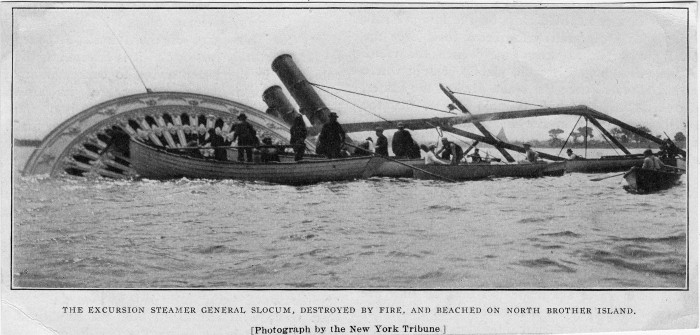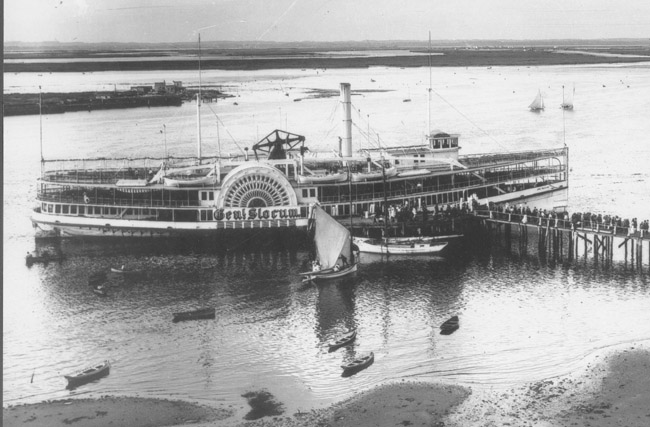Searching for the joy and peace of a picnic doesn’t always mean it’s attainable. One thousand congregants of St. Mark’s Lutheran Church boarded General Slocum’s steamship at its birth on the East River in lower Manhattan and died.
They expected a pleasant journey to Eaton’s Neck, Huntington, and a day picnicking the facilities at Locust Grove Picnic Grounds. But fifteen minutes after leaving the pier, General Slocum was hopelessly in flames. The passengers’ panic increased as it became evident that there were life vests, but the lifeboats were glued to the deck by years of accumulated paint. In desperation, the captain ran the steamer aground, but there was no miracle. In the aftermath, James Joyce references the tragedy in his novel Ulysses
In the aftermath, James Joyce references the tragedy in his novel Ulysses
\which takes place in Dublin fourteen days after the disaster, June 16, 1906. As Mr. Crimmins, a bartender pours a drink for Mr. Kernan, he says: “Yes, sir. The terrible affair that General Slocum explosion. Terrible, terrible! A thousand casualties. And heartrending scenes. Men trampling down women and children. Most brutal thing. What do they say was the cause? Spontaneous combustion: most scandalous revelation. Not a single lifeboat would float and the firehose all burst. What I can’t understand is how the inspectors ever allowed a boat like that…”
Featured Image: General Slocum, a paddlewheel steamer at its birth on the East River in southern Manhattan , June 15, 1904
See Edward T. O’Donnell. Ship Ablaze: The Tragedy of the Steamboat General Slocum. New York: Broadway Books, 2003; 20; James Joyce. Ulysses (1922). The reference to the tragedy is from the “Wandering Rocks” episode, Part 2, episode 10; Also, the disaster of the steamer Eastland in 1915.
*General Henry Slocum was a major general during the Civil War and later served three terms as a member of the House of Representatives from New York. He was deeply engaged in many civic projects, including a commissioner overseeing the construction of the Brooklyn Bridge (1883)—under whose span the streamer sailed as it burst into flames.

